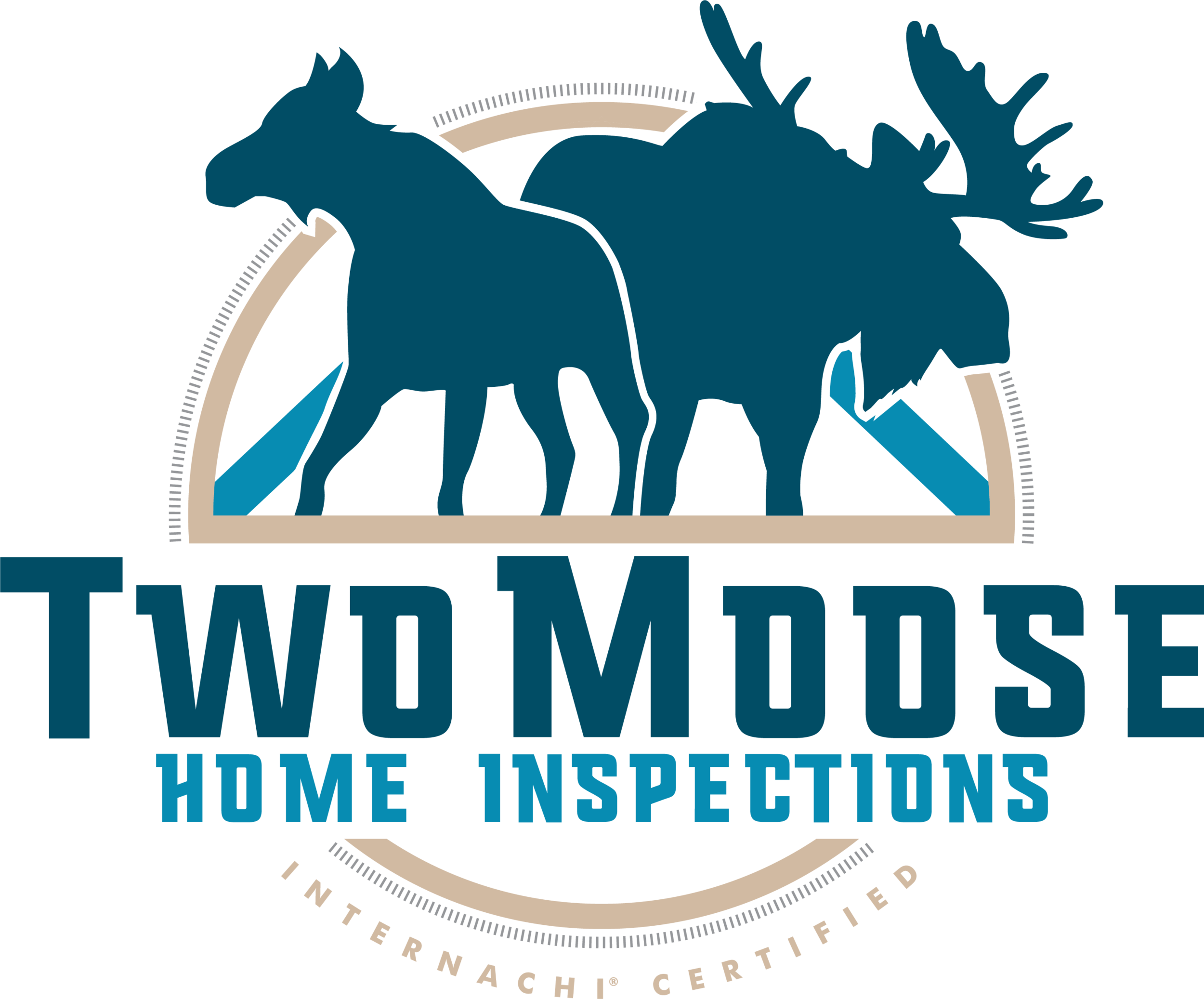S01E06 - Taped Switches and Hidden Issues: Navigating Home Inspection Reports
Transcript
Welcome to Moose Tales. I’m Jon with Two Moose Home Inspections, and I have some short home inspection topics that I want to discuss. So, let's dive right in.
When you think about the question, why did you hire a home inspector? One of the answers that might come to mind is I hired a home inspector as a generalist to prevent me from having to hire a bunch of specialists. And so, what you're doing is you're saying, okay, generalists go through the whole home, see if there's any kind of red flags or anything that's like picking your interest.
And then from there I will decide based on my amount of risk or my risk tolerance, What I am concerned about, what I think needs to be repaired. And then I'm going to call in the specialists, the heavy hitters, the ones that are able to say this is what has to happen, and this is when and this is why, and yada, yada, yada.
The home inspector is really just going to be able to say in general, if there is an issue. Here's a great example.
Let's say that there is tape on a light switch. Okay, There's tape on a light switch. We see that all the time. Why is there tape on a light switch? Well, I don't know. As the home inspector. I'm not going to dive deep enough into that to be able to figure that out while I'm there.
Otherwise, I could be spending a significant amount of time troubleshooting a system. So, let's just say the very most basic thing, we're going to put it in either a blue or an orange category that says, it's not really that big of a concern or, you know, maybe this is more of a concern because of these other things that I'm seeing.
But basically, our ranking system has is color coded and it goes blue, orange and then red. Red would be as if there was like a health safety type issue. So, it's going to probably be a blue or an orange.
What is so critical about there being tape on the switch? Well, a few things. One, maybe the switch itself is damaged or broken. And so, they put tape over top of it to protect somebody or to prevent somebody from using that switch.
So, the home inspector said there's tape on the switch and I can infer, okay, maybe the switch is damaged.
Here's another thing. Maybe the three way or four-way switching was wired incorrectly, or somebody put in the wrong type of switch, basically negating all of the wiring that was done for a three way or four-way switch. What that means is that if I walk into a room on one side of the room and I turn on the switch, the light should come on.
And if on the other end I turn off the switch, the lights should go off. Now, sometimes what happens is if this particular switch is in the off position, no matter what I do with any other switch, the circuit just will not turn on. And that is because an inappropriate type of switch was used. And so therefore I might put tape on it to say, hey, keep this in this position.
If you want all of these switches to work properly.
Another issue that could have been found is that there was an improper way of wiring this particular switch. So, they taped it in place to say, hey, this switch was wired incorrectly. And when you do so, it's going to cause a short circuit, it's going to pop the breaker, it's going to possibly turn off a receptacle somewhere else down the line.
And it's just not a condition that we want to have the house be in.
Additionally, the switch could be taped because perhaps they were using some type of permanently installed fixture and instead of permanently installing with its own run of wire its own circuit what they did is they attached it to the same circuit that is on this switch.
An example might be that somebody hooked up a refrigerator to a circuit that was being controlled by that particular light switch. They may have done a renovation and they put in a wet bar, or they put in something and instead of running a new run of wire, they just said, we're going to steal from this existing wire.
And then later they find out, wait, this existing wire is actually being controlled by the switch. So, what are we going to do? We're just going to tape that switch in the on position.
Another reason that that switch might be taped in the on position is because the wrong type of switch was being used for the application, such as there should have been a timer, there should have been a sensor, whether that be a motion sensor, temperature sensor or any other kind of sensor that we could possibly put into that location.
But it's the wrong type of switch. And so, I want that switch to remain on. And that might mean that I have heat tape and I want that to stay on. It could be that I have some other form of permanently installed equipment that I want to stay on. There can be lights that I need to stay on, and it's the wrong type of switch that was installed.
Whether it should have been a three way or some type of sensor switch
and having the switch taped in the on position could also indicate that there's some kind of larger issue with the House, whether it be an issue with ventilation, issue with heating, an issue with electrical systems. And so really, whenever we see that there is an electrical switch that is taped, there's really about six or seven things that could be wrong, ranging from a super simple $1 and 50 cent fix all the way up to maybe a $5,000 electricians bill to try to figure out where a wire was frayed, cut, damaged or spliced incorrectly.
Therefore, the main question is what do you, as a home buyer, feel comfortable with? And what I mean by that is if you feel comfortable with electrical work, meaning, I could totally go in and I could revamp the entire electrical for this house, that's no big deal for me then.
Great. Your level of concern means that whenever you read that inspection report, you're not going to be worried at all about any of the electrical issues that you're finding. But maybe you're not very good at H-Back. Maybe you're not very good at plumbing. Maybe you're not very good at foundation type work. And if that is the case, then whenever you look at the inspection report, you might say, “Yeah, I see that there's like six or seven electrical issues.
That's no big deal. But hey, what's this one big plumbing issue that you, see? that's what it is. And that's why the whole conversation with your inspector is so important, because you can say it's just that easy thing. Well, I've never done plumbing. How easy is it to fix? How much do you think it might cost to have that repaired?
How long do you think it'll take to make that repair? Is that a specialty thing or a non-specialty thing?
So, by having this conversation with your inspector, you can understand what the inspector’s feeling, what the intuition is, that I can only report that I see this and visually this is what I see. But I actually think that there's a larger issue going on with this particular house, a great example would be we had a sewer scope performed and we saw something we just didn't like.
It was just off. And it's just the most subtle and small thing. But it was off, and we told them about it. We explained why we thought it was off. And then, you know, we come back to do a sewer scope inspection again and we see there's the excavator and they have shown up with all this heavy equipment.
They've already dug out the entire ground. And we're like, my gosh,
And what happened was the drywall contractor took a whole bunch of drywall mud and just started pouring it down the drain.
This house had never been in use. And this is really what kind of got us questioning why would this be occurring? We saw a lot of sludge build up. We saw a lot of obstruction. We saw a lot of things just sticking inside that pipe the way that they really shouldn't. And overall, we were like, we think something's wrong, but we can't get past this particular blockage.
There should not be a blockage. This is a brand new $6 million house that has not ever been lived in. I don't like what's going on. And I really think that we need to have a professional come out here and take a look at it. And the clients were so happy that we did because then they got the whole yard dug up, they got this pipe out and they had an entire pipe just completely full of this drywall mud.
And so sometimes having that conversation with your inspector about things that, you know, you don't feel comfortable repairing yourself could be really advantageous. Because again, on paper, yeah, something was wrong. It wasn't great. But in our minds, we were saying there's all these things that aren't lining up and we think it's actually severe issue that you might want to have somebody come out and possibly dig this up or do what needs done.
And they ended up replacing a whole bunch of pipes because it was just trashed. End of story.
So, we try our best to understand how the House is as a whole.
And all that we can do is say we're looking at all of these different systems, not just looking at this one system or this other system. And sometimes we might say, Yeah, you might want to call in a structural engineer. Sometimes we say, Yeah, you might want to call in a deck professional because this deck just isn't going to make it.
And just like this last example, we said, Yeah, you're definitely going to want to call in somebody to take care of this sewer line because something was definitely wrong. And they did, and it turned out really well. So, whenever you hire a home inspector, you have a certain budget for what you can actually afford to have looked at, repaired and other things like that.
And it's a really good idea to just understand that whenever you see that report and there's all these deficiencies, nobody says that any of those deficiencies have to be repaired. But what we are saying is here are the things that are going on in the House, which is normal for pretty much every single house. But are you comfortable going in and making these repairs yourself?
And if not, then the ones that you're not you might want to address before you take complete ownership of that house? That's a Pod.


